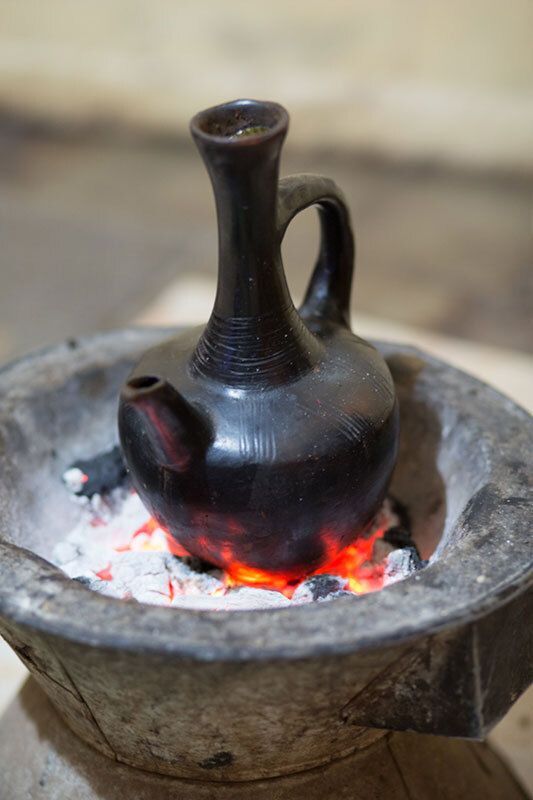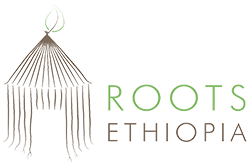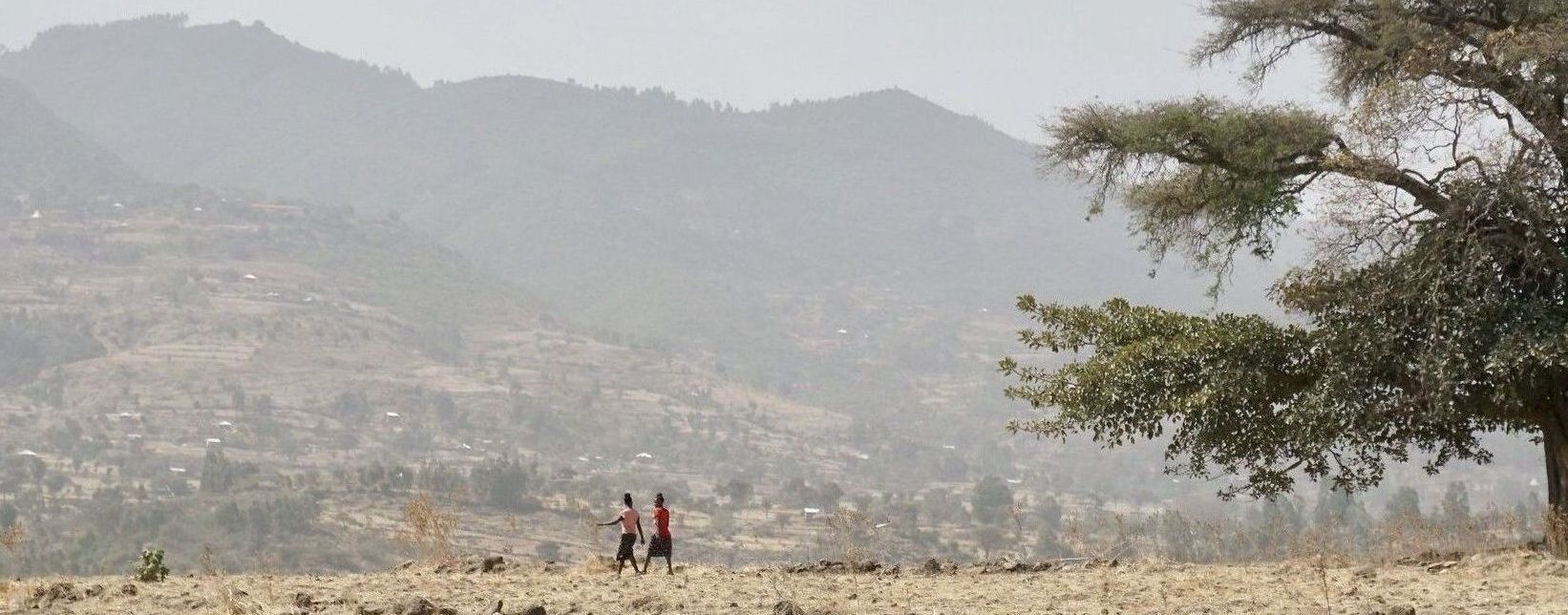09/02/2022
This is part two of “Drinking Coffee The Ethiopian Way” about the importance of coffee in Ethiopia, focusing on the coffee ceremony.
In Ethiopia, each coffee ceremony, or buna, follows a format. Typically, a female in the house conducts the ceremony. It can be held outside, or inside. She may wear a traditional white cotton dress embroidered with bright colors on the sleeves and hems (called ’tilet’). The ceremony starts with spreading dried grass and flowers on the floor. Special incense is lit. After being washed, green coffee beans are roasted in a pan over an open fire. Once the beans start to become dark and oily the aroma fills the room, the anticipation or drinking the rich, dark coffee begins in earnest. She will carefully move the hot pan with the roasted beans around the room for guests to appreciate the aroma.
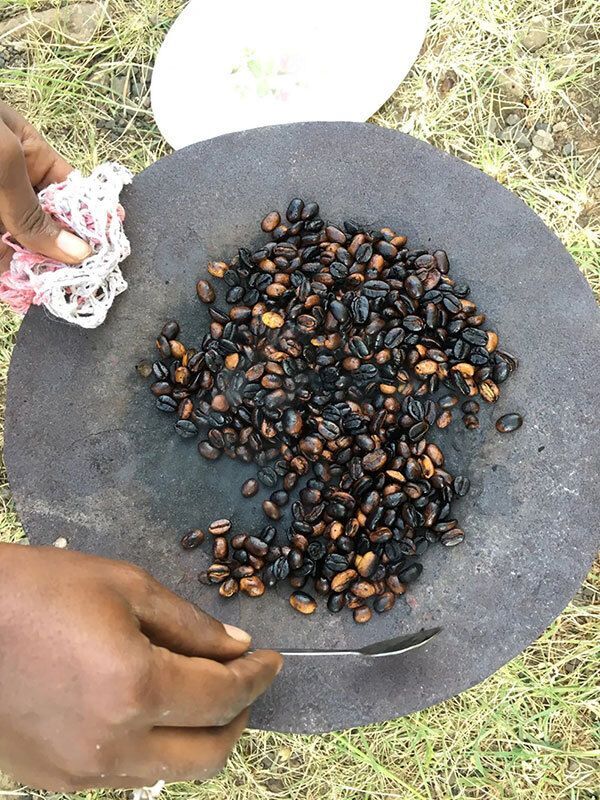
As everyone sits around the jebena (clay coffee pot) the coffee beans are ground with a wooden mortar and pestle. Next, the grounds are put into the pot to boil for about five minutes. The hostess pours coffee into small cups for each person. As a show of respect elders drink first. Children often participate by taking coffee to adults.
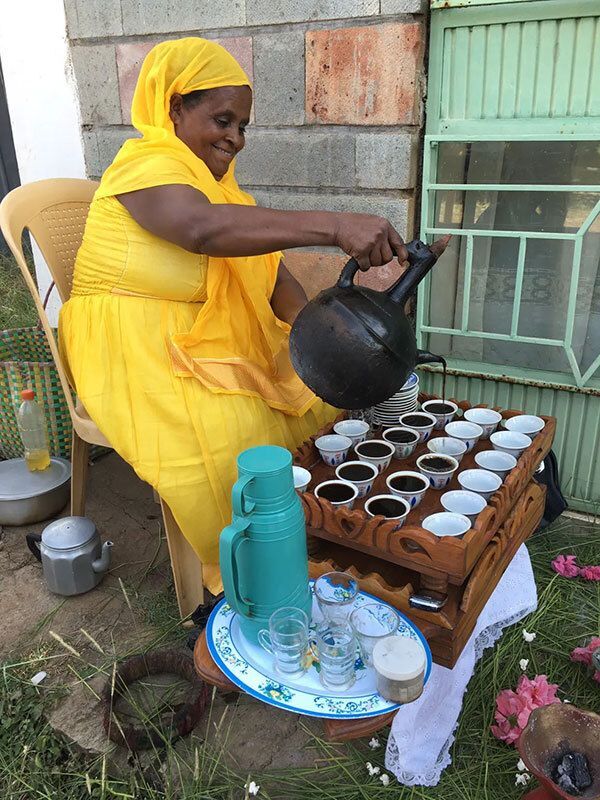
The process is repeated two more times. The coffee gets progressively weaker and lighter with each round. The first serving of coffee is called “abol” which is the strongest and richest. Elders and guests are expected to get a cup from the first boiling. Some people add sugar, salt, herb, milk, or spiced butter. The second serving is “tona,” meaning second. The last serving is “bereka” and symbolizes acceptance. This last cup is considered to bring a blessing. Children are often invited to drink a cup from third serving.
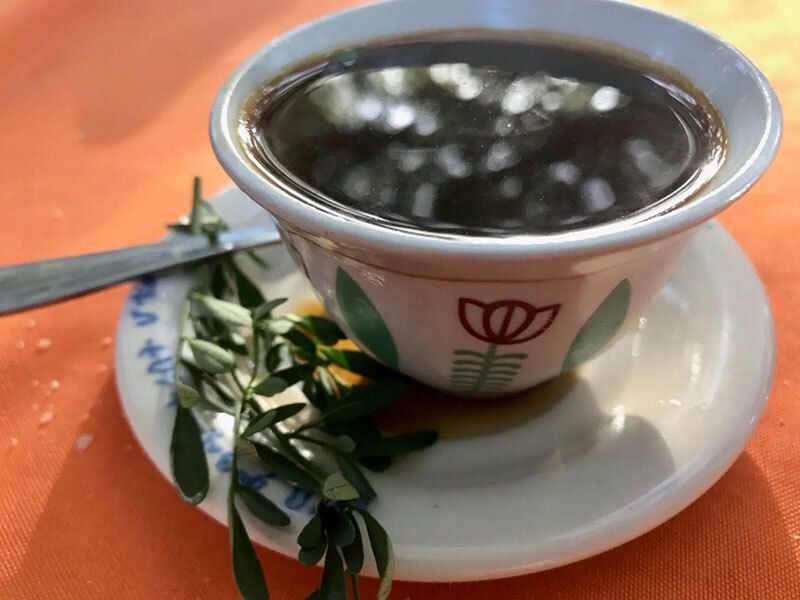
It is considered impolite to refuse an invitation to a coffee ceremony or to retire before all servings are completed. Getting together for coffee is the most important social occasion in many villages. It serves as a time-out from everyday life and an opportunity to give thanks for the many blessings in life. Communities use the time to catch up, friends share news and gossip, and elders discuss various issues in the community. Beyond sipping a good cup of coffee, the Ethiopian coffee ceremony is important cultural ritual that holds almost a sacred status.
If you ever can participate in a buna, you won’t want to miss it!
